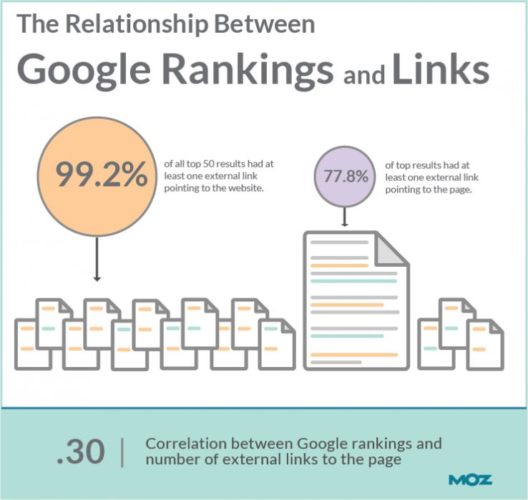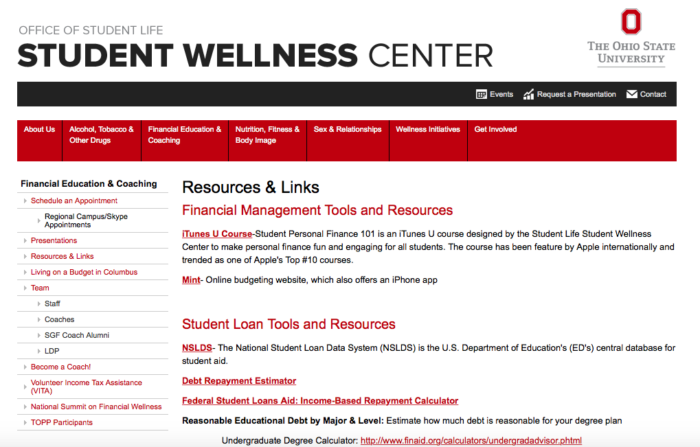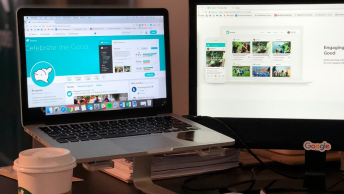If you want to know how to find quality link earning opportunities, you must remember:
Links are one of the most important rankings signals in SEO. But don’t build links.
You don’t need to worry about how many links are pointing to your website, but you’re not going to rank well without them.
Sure, I’m paraphrasing a little bit, but we’ve heard this pretty consistently now over the past few years.
I’m not going to tell you that it’s impossible to rank well without links. I’ve seen few, and I mean very few, cases where people have proven that you can.
But quite a few studies, like the one completed by Moz, (or Google ), have proven that high-quality links are a ranking signal that can’t be denied.
That being said, I firmly believe that building links is completely dead. Let me explain…
Building links, in its original form, consisted of article submission services, social bookmarking, paid links and more mass submission methods of “building” links.
As we continue to venture into a new era of SEO and digital marketing, these methods are distant, albeit forgotten memories (other than a few still selling these types of services to those desperate or unknowing souls).
Google wants earned links. This is what they mean when they say you shouldn’t be focused on building links. They are saying you should be focused on earning links. It’s a completely different concept.
You might be wondering, “Well, how do I do that?”
Here’s how to find quality link earning opportunities
Here’s how to find quality link earning opportunities that will help increase traffic, build your website’s authority, and ultimately earn the links you desire:

Warning: A lot of blood, sweat, and tears go into link earning.
You’re going to need some things before you start putting a link earning strategy together, but most importantly you’re going to need 10x content, and patience.
1) Competitive research
Start with your competitors within the industry. Especially the competitors that are doing well. They most likely have several links pointing to their website.
Obviously, these websites are interested in what is going on or being said within your industry because they are linking to your competitors.
Research who is linking to your competitors, how they’re linking to them, and what they’re interested in. This is a great place to start in developing a link-earning campaign, as well as content that can be created on your own website.
Then you can start the outreach process.
2) Find out-of-niche, but relevant blogs
It’s kind of a mouthful but bear with me. Here is an example:
If you are a moving company, you really have nothing to do with college students. In fact, college students don’t really care about a moving company, that is until they have to move.
So as a moving company, creating content that focuses on college students moving is very relevant, i.e. this blog post about moving off campus.
This leaves a lot of room for creativity. For instance, if you’re in the music industry, creating an article on the top songs to listen to at work for maximum productivity can be helpful.
3) Resource lists
Would you like to know who loves to provide resource lists for their users? That would be .edu and .gov websites. With domain authorities that will make you sweat, .edu and .gov websites are always creating some type of resource list for their users.
Say, for instance, I own a website or blog that focuses on financial services and content. A list like this one from Ohio State for a .edu website would strike my interest.
They obviously want to provide financial resources and tools for their users and students. I could possibly help enhance their list by providing a valuable piece of content or resource.
But you don’t have to stick to .edu and .gov websites. You can look at those within your industry or that have some type of relationship within your industry.
For example, if you own an appraisal company, websites within the real estate and mortgage industry might be a great place to start finding opportunities for resources and more.
4) Get quoted
This is a method that has proved highly effective in my personal use. Authors and editors are always needing input from knowledgeable and experienced individuals just like you. It helps add value and credibility to certain pieces.
It’s something you should be doing in your own content as well (we’ll get to that in the next point.)
If you don’t have a HARO account, get one. Writers are chomping at the bit to feature you in one of their articles.
With a plethora of topics and categories, you are sure to find great link earning opportunities. It also helps you build your authority within your industry, as well as create relationships that can have several benefits.
5) Get quotes
People love to be quoted on other websites. When they are quoted and featured in your content, they’re more likely to read it, share it, and link to it. The three things you want everyone doing with your content.
You can use tools like HARO, or you can do some outreach and directly ask for contributions. Just make sure you let them know that you’re featuring them in the content.
Once the piece is live, make sure to notify them. Ask them to share it through their social media and if there’s a linking opportunity, that would be great also.
6) Blog commenting
The title of this article is how to find quality link earning opportunities, not how to get links. So for those who see blog commenting and think, “Uh, what is this guy talking about. That’s not earning quality links,” I say you’re correct.
I’m not suggesting for you to use blog commenting to earn links. I’m saying that you should use blog commenting to find high-quality link earning opportunities.
This happens through commenting on active blogs where the authors or administrators are consistently responding to comments. I’ve struck up several conversations that have led to relationships, which have then turned into guests posts and other types of links.
Sure, some quality nofollow links can come from it. But the goal is not necessarily to earn the links but the chance at link earning opportunities.
If you engage with the author through comments, you can then transfer over to email, and now you’ve built a rapport with that author or site owner. A powerful relationship.
7) Guest posting
Guest posting is not dead. It is alive and well. I know many would like to disagree with me, but it’s not. Especially if your goal is to provide valuable information for the user through unique content. You will struggle with this.
Mainly because the websites that you want and should be trying to contribute to are very picky. That’s a good thing but a challenge all in one.
Editors receive hundreds of emails on a daily basis with the request to contribute guest content or asking to view a certain piece of content. Each time being asked for a link. So they get a little annoyed and tend to skim through.
That’s why the best thing to do is work to build a relationship with these individuals. Sending blind emails doesn’t have a great success rate. But when you’ve already entered into a conversation at some point, it definitely helps.
The pitch email is a skill that is mastered by few and one that I myself still work on daily. Find out what they’re interested in, what gets a lot of shares on their website, and the best one, find out what they don’t have.
Start Link Earning!
It’s not going to be easy. But if you stay committed and actually put in the time, I can almost guarantee that you’ll start earning links that are going to make a difference for your website and your business.
Share what other ways you earn links to increase your website’s traffic! Comment below…












